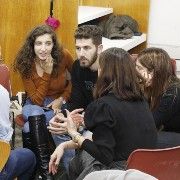Ofakim: Training Jewish Studies Teachers, TAU Style
By Lindsey Zemler
When Itamar Ohana-Lev began his Jewish studies courses at TAU, he marveled at his classmates’ broad range of backgrounds and perspectives. "Our collective learning process leads to a sense of magic in the group,” he says.
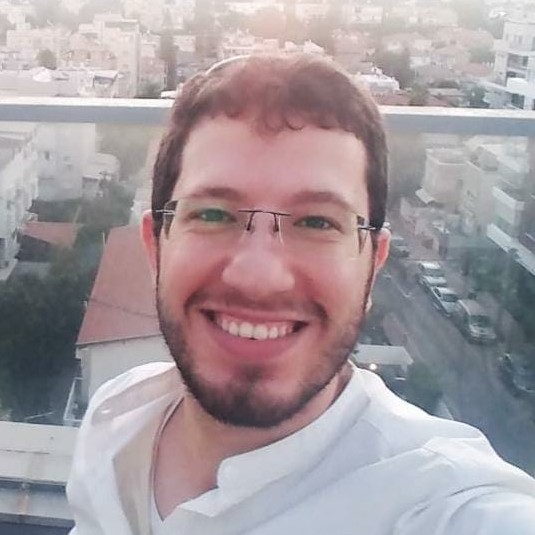 Ohana-Lev is a second-year student of Ofakim (“Horizons”): TAU’s Program for Teaching Judaism as Culture. This unique program trains outstanding students to teach Jewish philosophy in secular high schools. Based on the vision of UK philanthropist Felix Posen and supported by the Posen Foundation, co-founded by Felix and his son Daniel, for more than a decade, Ofakim is guided by the idea that Judaism is a deep ethical tradition of great historical and cultural importance.
Ohana-Lev is a second-year student of Ofakim (“Horizons”): TAU’s Program for Teaching Judaism as Culture. This unique program trains outstanding students to teach Jewish philosophy in secular high schools. Based on the vision of UK philanthropist Felix Posen and supported by the Posen Foundation, co-founded by Felix and his son Daniel, for more than a decade, Ofakim is guided by the idea that Judaism is a deep ethical tradition of great historical and cultural importance.
Ofakim student Itamar Ohana-Lev. Photo: courtesy.
The son of a teacher, the religious school-trained Ohana-Lev says that Jewish philosophy and education theory shaped his childhood, and he entered Ofakim with a well-developed understanding of Jewish texts. He discovered that although some of his classmates came from a background like his, others had few deep encounters with Jewish studies. To his surprise, he developed completely new ways of thinking about Judaism. Ohana-Lev credits this shift to collaboratively studying Jewish texts with his peers, who hold a wide range of Jewish identities. He emphasizes that his class’s sense of community is one of Ofakim's biggest rewards and contributes to its success.
He was drawn to Ofakim by a calling to the world of education, having been involved in youth education and leadership programs before his university studies. “I felt connected to Ofakim’s vision to influence society by exposing students who were not necessarily familiar with Judaism to Jewish culture in a positive way."
Prof. Ron Margolin, head of Ofakim, explains that "the aim is to help participants approach Judaism with an open mind, and make Judaism relevant to all," adding that the program attracts students from many sectors of Israeli society. Secular and religious children in Israel are taught in separate schools, with different curricula, and often have little interaction with each other. “Ofakim is a kind of laboratory which rebuilds their understanding of Judaism, “ Margolin says.
Program participants form a small, close-knit cohort for three years, during which they earn a BA in Jewish Thought from the Department of Jewish Philosophy and Talmud and an additional subject such as Bible Studies, Jewish History or Hebrew. In parallel, they earn a teaching certificate from TAU’s Jaime and Joan Constantiner School of Education. Upon graduation, they fulfill a three-year commitment to teach in secular high schools.
"We use an academic approach to Jewish texts that allows critical thinking,” says Margolin. “This brings about a new understanding of Jewish history and writings."
From these new understandings comes change.
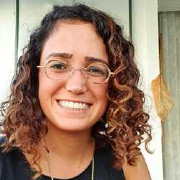 Second-year student Ayelet Ben Shitrit, who has always dreamed of being a teacher, came to Ofakim after undergoing a personal journey to explore her relationship to Judaism through the world of education. As a young adult, she participated in her Jewish youth movement's gap year program and worked in a synagogue in Chicago, lived on a mixed religious-secular kibbutz where she was an instructor at a pre-military education program, and was an education guide for an organization that raises awareness about religion and the State.
Second-year student Ayelet Ben Shitrit, who has always dreamed of being a teacher, came to Ofakim after undergoing a personal journey to explore her relationship to Judaism through the world of education. As a young adult, she participated in her Jewish youth movement's gap year program and worked in a synagogue in Chicago, lived on a mixed religious-secular kibbutz where she was an instructor at a pre-military education program, and was an education guide for an organization that raises awareness about religion and the State.
Ofakim student Ayelet Ben Shitrit. Photo: courtesy.
"Through my experiences, I felt connected to a different world Judaism, which offers so much – it has history, culture, and roots," says Ben Shitrit. "When I found Ofakim it felt so right; it brought me closer to my passion both for education and a Judaism which belongs to everyone."
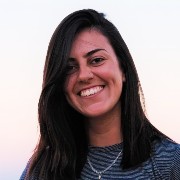 Libby Levi, another second-year student, is one of the members of her cohort that identifies as being completely secular. She arrived to the Ofakim Program after being introduced to seeing Judaism as a culture while serving as a social guide in the “Israel Journey” program for young Israelis to deepen their connection to the people, Land and State of Israel. "My longtime dream is to make education more accessible, and I understood that Jewish philosophy is a platform to teach many meaningful topics."
Libby Levi, another second-year student, is one of the members of her cohort that identifies as being completely secular. She arrived to the Ofakim Program after being introduced to seeing Judaism as a culture while serving as a social guide in the “Israel Journey” program for young Israelis to deepen their connection to the people, Land and State of Israel. "My longtime dream is to make education more accessible, and I understood that Jewish philosophy is a platform to teach many meaningful topics."
Okafim student Libby Levi. Photo: courtesy.
To date, more than 150 Ofakim graduates have taught in Israel’s education system on subjects such as Jewish thought, Bible studies and Jewish history. Yarin Raban, a graduate who currently serves as Department Head for Jewish Philosophy at Galili High School in Kfar Saba, has seen the Program’s impact first-hand. Helping young Israelis connect to Judaism is a challenge that requires the special training that Ofakim provides and that most teacher training programs do not, he says.
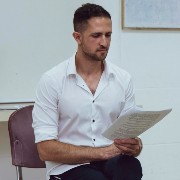
Raban continued to teach at the school where he fulfilled his teaching assignment for four years beyond his obligation, and has no plans to leave anytime soon. He works alongside four other Ofakim alumni. “What sets us apart from other teachers is both our network of alumni, and our unique perspective on Judaism as a culture that fits all,” he says. “The tools we give the pupils grant them a rare/special opportunity to interact with their Jewish identities.”
Ofakim alumnis Yarin Raban in the classroom. Photo: courtesy.




